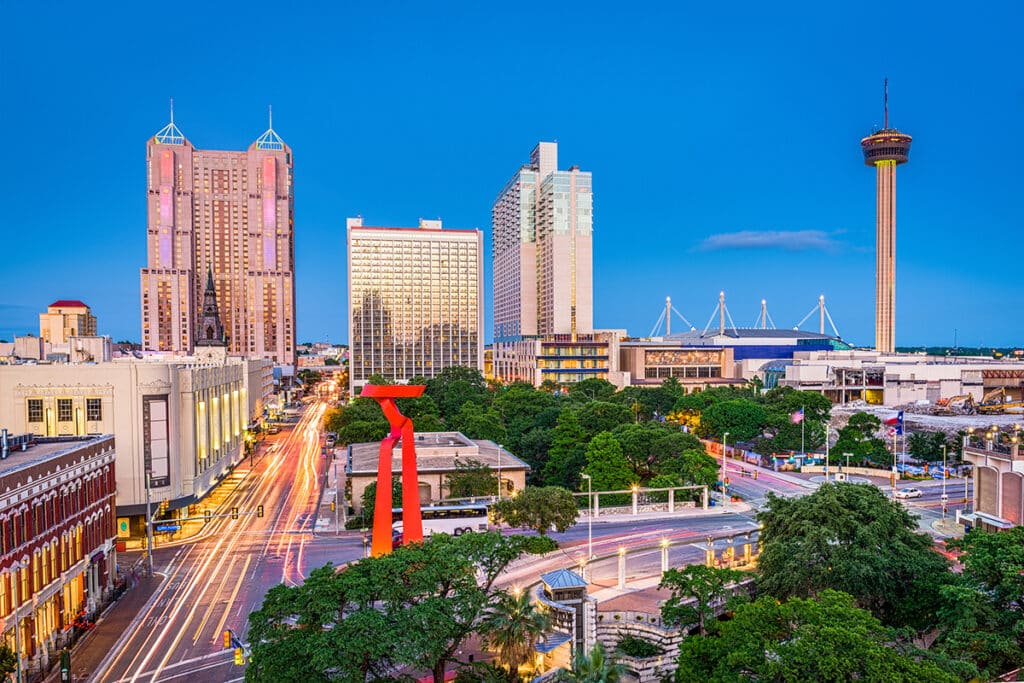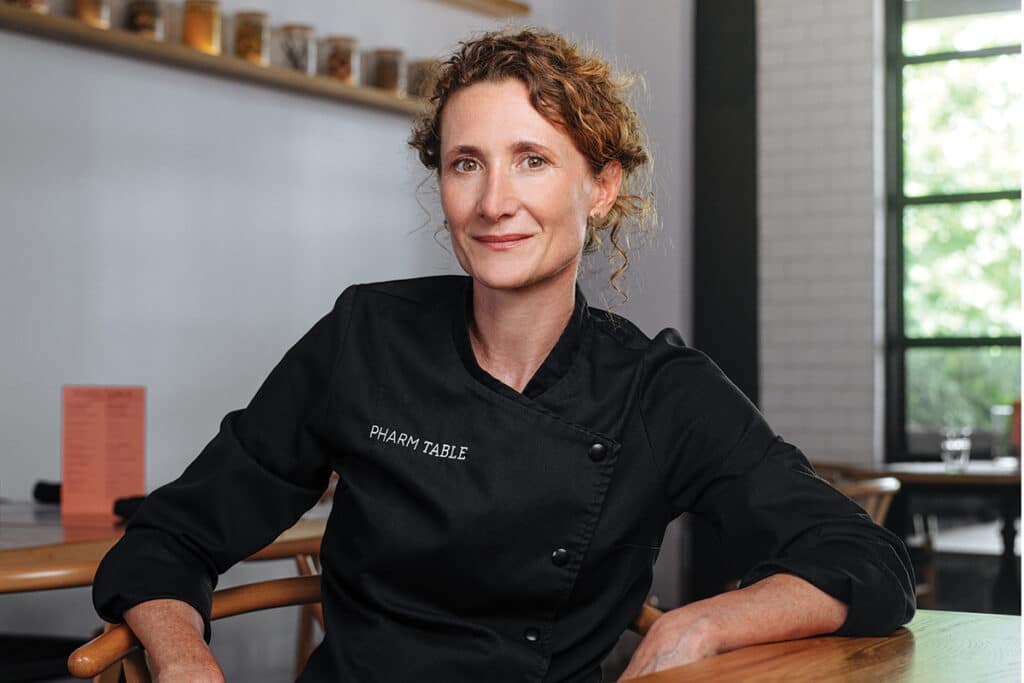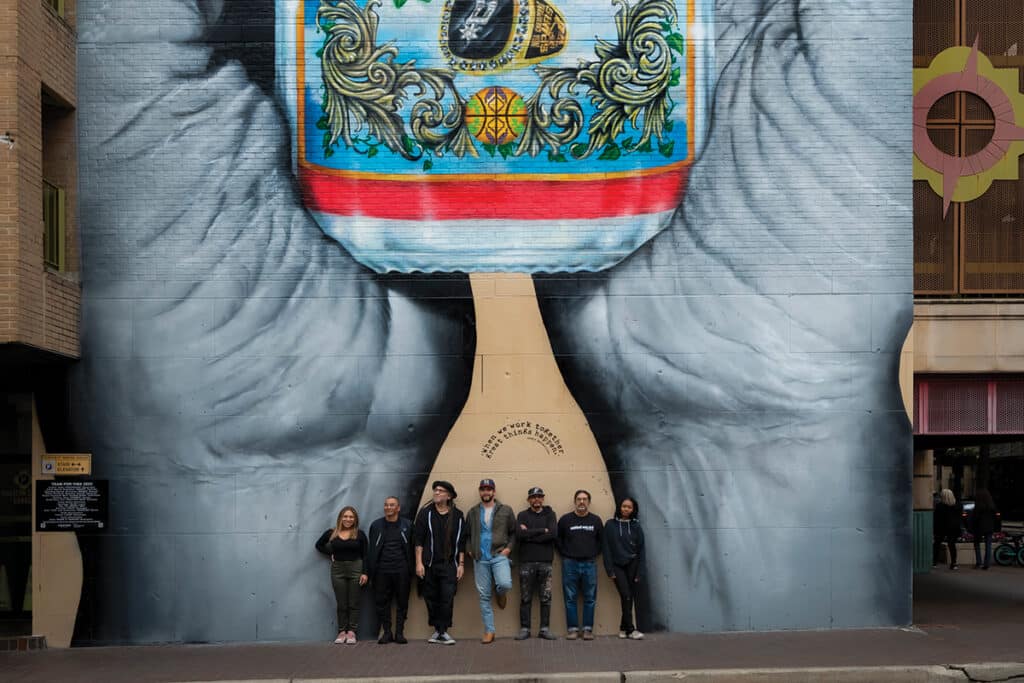San Antonio Breast Cancer Symposium 2021
Expanding the Role of Advocates in Cancer Research and Treatment
By Sean M. Wood
Breast cancer advocate Julia Maués has a saying: “Researchers are experts in the science of cancer. Oncologists are experts in treating people with cancer. Patients are experts in living with cancer.”
Thousands of patient advocates will descend in person, or virtually, upon the San Antonio Breast Cancer Symposium, Dec. 7-10. They will come armed with pointed questions and a hunger to learn about the latest advances in the treatment of breast cancer, available clinical trials, and how the newest research and results could potentially affect their future with breast cancer.
Advocates are an integral part of symposium programming. It’s been a long, slow process to get to this point. Today, nearly every cancer conference or event has some component designed for the advocates.

“Back in the day when we started this, there were very few women or men who wanted to know the science or cared about the science,” says Sandi Stanford of the Alamo Breast Cancer Foundation. “Their doctor told them what to do and they did it, without question. Today breast cancer affects more younger people and men. They are all active in wanting to be more knowledgeable.”
Advocates have been part of the programming at SABCS for nearly a quarter of a century. The Alamo Breast Cancer Foundation was the first group invited to participate. Since then, the amount of advocacy programming has continued to increase. Advocates can also attend for free if they can get to San Antonio.
“The contribution by the advocates has been critical,” says Virginia Kaklamani, M.D. and SABCS co-director. “They help us focus on what’s important to patients, they help recruit patients to clinical trials, and they help to pass legislation that assists us in caring for our patients.”
Patient advocacy has evolved from a handful of grassroots organizations to highly organized networks of knowledgeable, trained, passionate champions for advancement in the understanding and treatment of breast cancer. They have evolved around special interests based on cancer type, domestic situation, ethnicity, gender, location, etc. All share a common enemy — breast cancer.
Fighting for Inclusion
Maimah Karmo, the founder and the CEO of the Tigerlily Foundation, has become a vociferous and forceful champion for eliminating health disparities, particularly when it comes to treating breast cancer. She had to fight for a biopsy to confirm a breast cancer diagnosis at 31 after a breast surgeon dismissed what she saw on Karmo’s mammogram. “If I had taken her advice, I would most likely be metastatic or dead today,” she says.
Karmo is leading the conversation around health equity in breast cancer treatment. It’s been a 15-year fight that started getting serious traction in the last few years. In 2019 Tigerlily held a “Fireside Chat” at SABCS, and the turnout resulted in a standing-room-only event.
“It was revolutionary and transformative to have that many Black women in a room where a Black woman was the expert — building, bringing and setting the table — and providing her perspective as a patient,” Karmo said. “Before that, it was like people would see you but not see you. It was almost like we were invisible. Black and Brown women have always spoken up but have not been heard. But finally, we are asserting our value as Black patients. The next year, the murder of George Floyd occurred, and the whole world suddenly realized racism still existed. They realized these are still major problems, and Tigerlily is a force in working to fix them.”
Floyd’s murder, Karmo says, made audiences more receptive to conversations about race. She kicked off one of the opening special sessions at #SABCS20 with Dr. Charles Perou, the Distinguished Professor of Molecular Oncology at the UNC Lineberger Comprehensive Care Center. “Setting the Stage for Health Equity, Collaboration and Partnership,” was sponsored by Tigerlily and the American Association for Cancer Research.
She and Perou are co-hosting another special session this year aimed at strengthening the bridge between science, patients and communities facing disparities in health care. It’s titled, “Injecting Humanity into Science, Trials & Social Design: A Patient Perspective.”
“So many of the sessions at these conferences are focused on the science,” Karmo says. “But if we keep talking to ourselves about the science and forget about the people who are going to be benefiting from the science, or they don’t have access to it, then what’s the point?”

Empowering Advocates
In the beginning, advocates were self-taught. Everything they knew about cancer were the things they learned themselves. That still happens, but now, thanks to a larger number of advocacy support organizations and programs, education occurs on a larger scale.
“You don’t have to go to the library to look up a book,” Stanford said. “You don’t have to go to the medical school and get their permission and hope to find what you’re looking for or hope you understand what you read.”
Advocacy is a regular part of symposia like SABCS. Groups like ABCF offer scholarships for advocates to attend, get the latest information, then go back to their communities to share with patients and members of the medical community as well.
Maués and her friend Christine Hodgdon launched a program at SABCS19 called GRASP, which stands for Guiding Researchers and Advocates for Scientific Partnerships. Researchers tour the poster presentations with cancer patients and advocates. The researchers explain the science on display, and the advocates discuss how those treatments affect their quality of life.
“We call it an exchange of ideas or an intellectual wrestle,” Maués says. “The main point is that in all areas — patient care, research, policy — the patient needs to be the driver of what the focus should be.”
The Tigerlily Foundation is now working on a goal to train 500 women a year to be advocates for inclusive care. “We have women of color we’re training every single week,” Karmo says. “They’re learning about cancer research, trials, and advocacy. We have women available to help these huge organizations with their research and science, where to put clinical trials, how to reach patients of color from different communities, and advising them on what they need. We’re making them realize that patients are the experts.”
The groups and advocates also inspire and support each other, each group building on the efforts of those who have come before. “Sandi Stanford is a mentor to Christine and me and has opened so many doors for us,” Maués says. “Maimah has made GRASP — and Christine and I personally —into a better organization and better people, guiding, teaching, and collaborating with us on our antiracism journey.”
When the San Antonio Breast Cancer Symposium was launched 44 years ago, it was to disseminate state-of-the-art information on the experimental biology, etiology, prevention, diagnosis, and therapy of breast cancer and premalignant breast disease. Today it attracts an international audience of academic and private physicians and researchers, as well as thousands of advocates.
“They want the knowledge, and they want to share their knowledge,” Stanford says. “And more and more oncologists are learning the advocates have a lot to offer.”
To learn more visit Sabcs.org.






